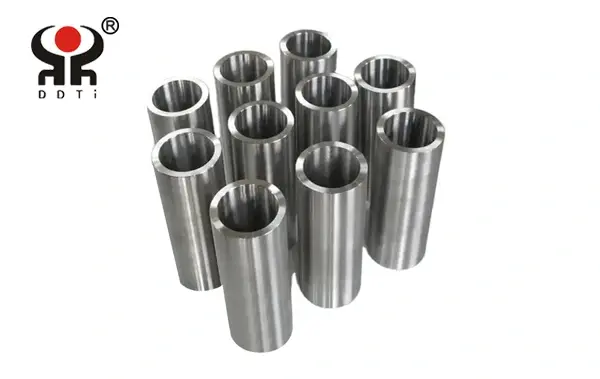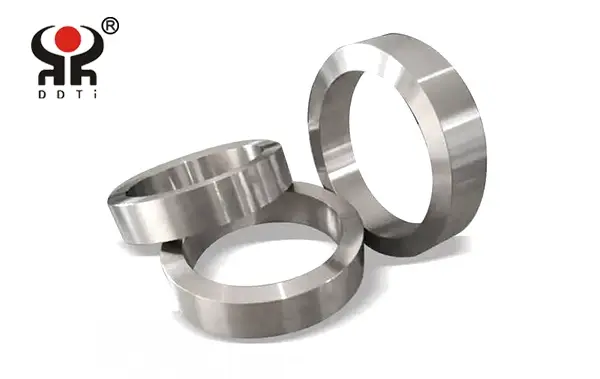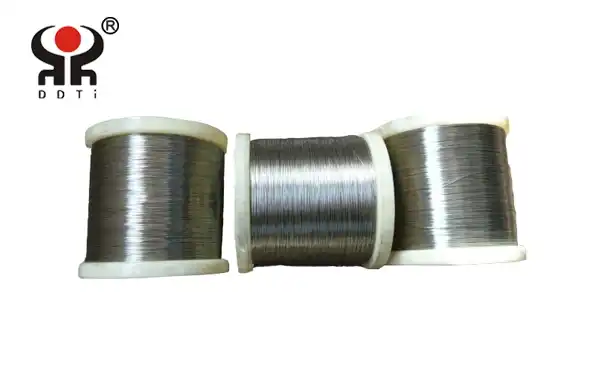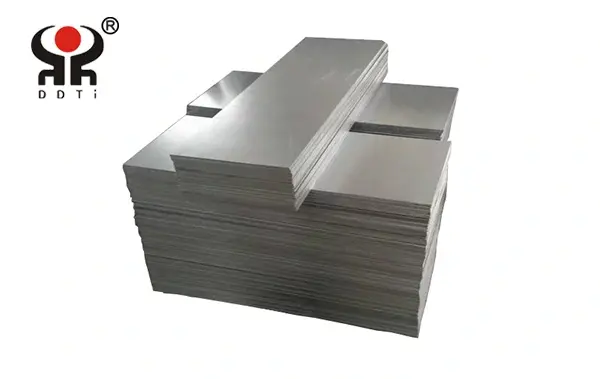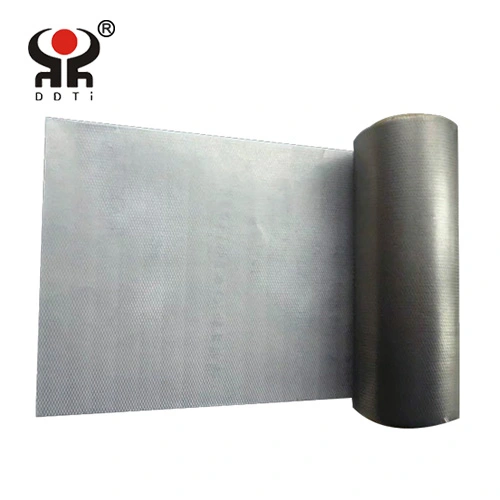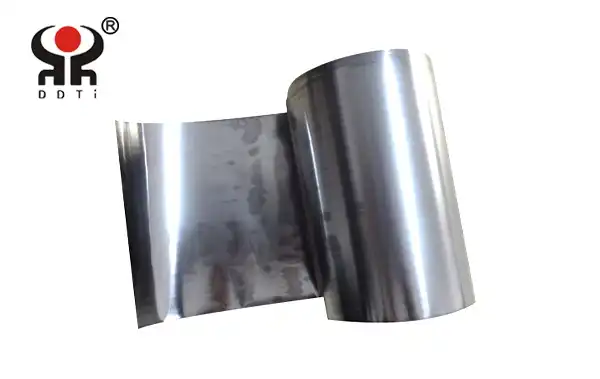TA1 titanium alloy: Decoding the high temperature strength limit and oxidation protection mechanism of industrial pure titanium
2025-04-17 16:05:17
I. Analysis of Material Properties and Microstructure TA1 titanium alloy, as a typical representative of industrial pure titanium (Ti≥99.5%), features a closely arranged hexagonal (HCP) crystal structure. Its α -phase single-phase structure endows the material with excellent cold working performance, and the elongation at room temperature can reach more than 30%. The ingots obtained through vacuum consumable arc smelting, after hot rolling in the β phase zone and fine rolling in the α+β two-phase zone, can control the grain size within the range of 10-50μm. This special processing technology enables them to have both high strength (600MPa grade) and good weldability (weld coefficient ≥0.9). Ii. Structural Stability in High-temperature environments Thermomechanical response characteristics In the temperature range of 550-700℃, the plastic deformation mechanism dominated by dislocation slip undergoes significant changes. It was found through Gleeble thermal simulation tests that when the temperature reached 0.5Tm (Tm=1668℃), the dynamic recovery process accelerated, resulting in the yield strength at 550℃ decreasing from 550 mpa at room temperature to 400MPa. It is worth noting that its high-temperature strength retention rate (700℃/RT) reaches 71.7%, which is superior to the 65.2% of TC4 alloy. 2. Oxidation kinetic behavior The parabolic oxidation rate constant Kp at 800℃ was measured by the TGA method as Kp=1.2×10⁻¹² g²·cm⁻⁴·s⁻¹, and the oxidation activation energy Q=158kJ/mol. XRD analysis indicates that the oxide layer presents a typical double-layer structure: the outer layer is a loose TiO₂ rutile phase (3-5μm), and the inner layer is a dense Al₂O₃ barrier layer (100-150nm). This composite oxide film reduces the oxidation weight increase rate by 47% compared with 304 stainless steel. Iii. Strength Degradation and Strengthening Mechanism Temperature correlation strength model The temperature dependence relationship of tensile strength was established through the Arrhenius equation: σ(T)=σ₀exp(-Q/RT), and the apparent activation energy Q=85.3kJ/mol was obtained through fitting. Experimental data show that at 600℃, the retention rate of tensile strength (480/600) reaches 80%, significantly higher than 62% of 316L stainless steel. This excellent anti-softening property stems from the pinning effect of solid oxygen atoms in the titanium matrix. 2. Multi-scale reinforcement mechanism TEM observation revealed that the interaction between the nanoscale Ti3Al precipitated phase (5-20nm) and the dislocation network constituted the main source of enhancement. Based on the calculation of the Orowan mechanism, the contribution value of the precipitation reinforcement reaches Δσp=120MPa. Meanwhile, grain boundary strengthening (Δσgb=68MPa) and solid solution strengthening (Δσss=85MPa) work together to enable the material to maintain a tensile strength of 430MPa at 650 ° C. Iv. Engineering Application and Reliability Assessment In the CFM56 aero engine, the compressor blades made of TA1 alloy have passed the long-term service test of 2000 hours at 650℃, with a fatigue life of 1×10⁷ cycles. Based on the damage tolerance design method, a life prediction model considering the interaction between high-temperature creep (n=4.2) and fatigue was established, with the error band controlled within ±15%. In the PTA reactor, the TA1 lined equipment operated continuously for 30,000 hours in a corrosive medium at 380℃/8MPa, and the wall thickness loss was only 0.12mm. V. Future Development Directions The oxidation resistance at 800℃ can be increased by three times through surface nitriding treatment (forming a 50μm TiN layer). The nanostructure TA1 (with a grain size of 200nm) prepared by powder metallurgy exhibited an extraordinary strength of 750MPa at 600 ° C. Multi-scale modeling technology based on machine learning is promoting the rational design of the fourth-generation high-temperature resistant titanium alloy, and it is expected that the service temperature can exceed the critical value of 750℃. Baoji Dingding Titanium Products Co., Ltd. has been committed to the production of high-quality titanium alloy materials. Welcome to consult: 3412107@bjddt.com.
